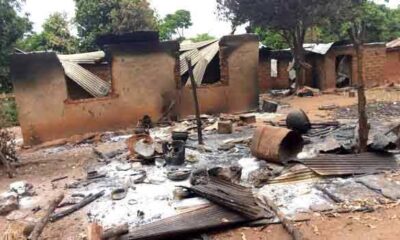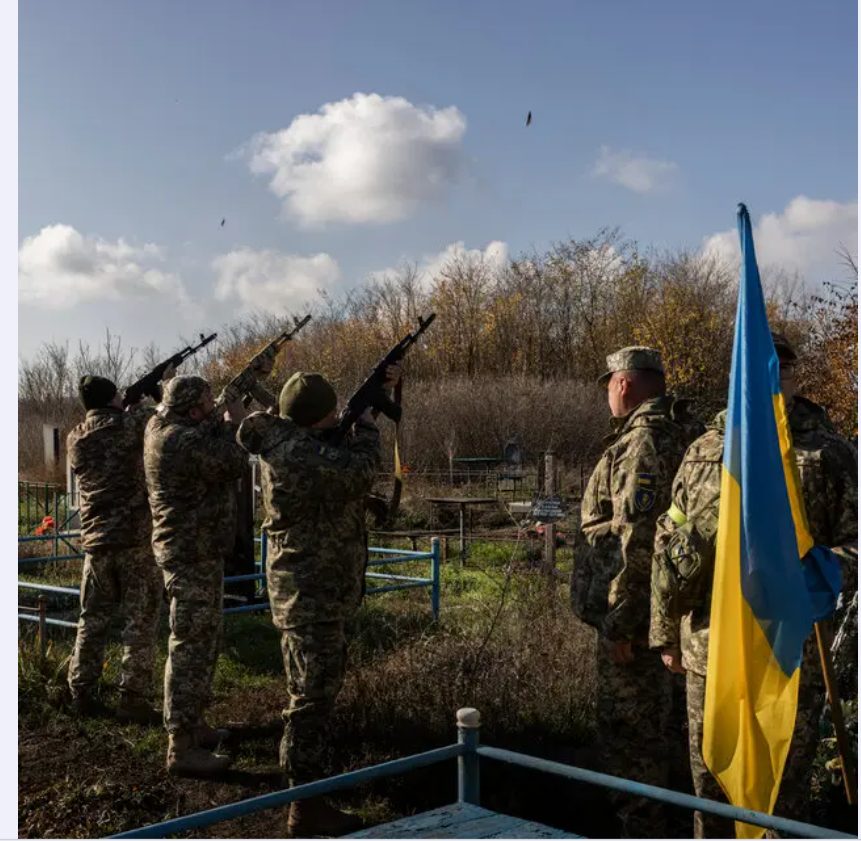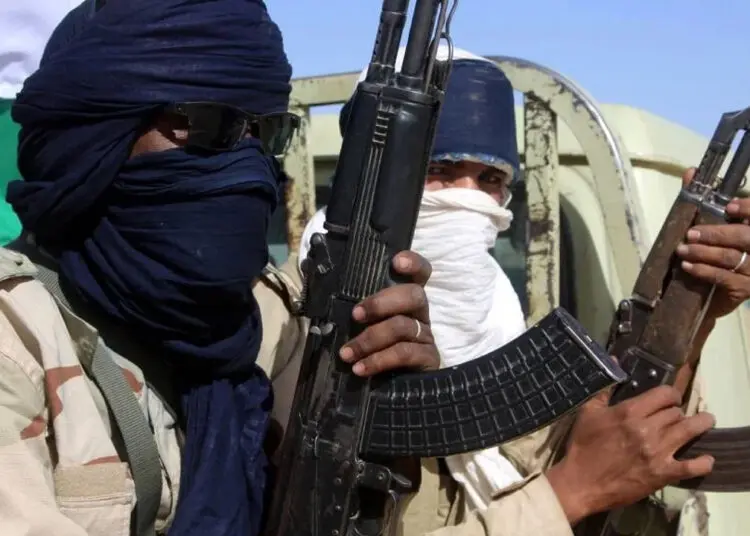Trending
Trapped in Lebanon, African fear for their lives amid racist uptick
Published
6 months agoon
By
Ekwutos BlogIn Lebanon, everyone appears to be scrambling for safety as best they can. But many of those left behind are migrant domestic workers, especially from Africa.
Migrant workers of African origin say they have found it difficult to access emergency shelters after their Lebanese employers abandoned them in the middle of a worsening conflict zone.
“These people do not care about us. To them we are like working machines. My friends were denied entry at shelters. There were thrown out because they are not Lebanese,” says Regina Blessing Kyalo, a Kenyan domestic worker who came to Lebanon in 2023.
“We are stuck. There is no way out,” she told DW.
Mariatu Tholley, a Sierra Leonean migrant living in Beirut, meanwhile told DW that she has been having sleepless nights: “They are bombing everywhere at night. This country is not safe for us for now,” she said, adding that she had nowhere to go.
Lebanese authorities meanwhile have faced repeated accusations in recent days or prioritizing their own citizens, and are accused of discriminating against foreigners.
Growing despair amid limited options
UN officials say thay most shelters in Lebanon for displaced people are now full, pushing people to sleep out in the streets or in public parks to avoid shelling and rocket attacks.
“Most of the nearly 900 government established collective shelters in Lebanon have no more capacity,” Rula Amin from the UN refugee agency (UNHCR) explained during a press briefing in Geneva.
Mathieu Luciano, head of the International Organization For Migration (IOM) in Lebanon, has also expressed his concern for thousands of domestic workers, often female migrants, whom he said we’re simply “abandoned” by their employers.
“They face very limited shelter options,” he said.
The situation is indeed extremely serious for migrant women in particular, as many work as freelance domestic workers who are usually paid by the hour, says Dara Foi’Elle from the Migrant Workers’ Action.
She told DW that many usually work as live-in maids in the middle-class areas of Southern Lebanon – the same region, which Israel has been shelling in search of Hezbollah operatives during the past few weeks.
“There is need for organized sheltering for migrants, which should be organized by international organizations,” she said while also stating that the Lebanese government has a policy “to prioritize its citizens at public shelters.”

Those who can’t make it to shelters find sleeping on the streets of Beirut safer – but some can’t even manage to get there
© Houssam Shbaro/Anadolu/picture alliance
‘Mission impossible:’ Lack of travel documents
The Lebanese government estimates that over 1.2 million Lebanese nationals have been displaced in the current escalation. There are, however, no reliable figures on how many foreigners might be affected by the ongoing crisis – and how.
There are over 175,000 migrants from 98 countries resideling in Lebanon, according to estimates by the IOM. Those numbers, however, only reflect the state of affairs prior to the current conflict situation.
To make matters worse, many migrant workers also find themselves in an unfortunate situation whereby they cannot evacuate for lack of travel documents – these are usually kept in the custody of their employers.
“Our bosses are holding on to our passports and travel documents. They are running away with our documents,” said Kyalo, describing any attempt to get back home as “mission impossible.”
The so-called Kafala system allows the confiscation of travel documents by employers and agencies in Lebanon to ensure that workers cannot abscond. However, this has considerably complicated not only the evacuation of migrant workers, but access to nearly all public services that might be of need at a time of crisis.
“A lot of migrant workers are unable to access health care and services offered by the government without documentation. This is a gross human rights violation now worsened by the security situation in the country,” Foi’Elle told DW.
Some migrants are even alleged to have been left behind, locked up in the homes where they work – unable to leave high-rise buildings in areas where the Israel Defense Force (IDF) has been carrying out strategic bombardments against Hezbollah positions.
Evacution plans with nowhere to go
Some foreign governments have now started organizing evacuation plans for their citizens but the overall process appears to be slow, given the urgency of the matter.
Bangladesh, Kenya, and the Philippines have all asked their citizens in Lebanon to register for evacuation.
Meanwhile, many African and Asian migrant workers don’t even have a proper embassy they can turn to for more information, or to try to get emergency travel papers to leave the country:
“The lack of diplomatic missions in the country is worsening the situation. Most countries do not have embassies in the country but only honorary consulates,” Foi’Elle told DW.
The curious case of Kenyan evacuation registrations
The Kenyan government meanwhile says that its nationals in Lebanon have been slow to register for evacuation despite being ordered to do so.
The Kenyan Department of Diaspora Affairs said on October 2 it had barely received evacuation applications – even though some Kenyans had turned to them earlier, appealing for help. Then in recent days, around 3,500 Kenyans in total were reported to have registered for evacuation – only about one eighth of all Kenyans believed to be in the country.
Roselyn Njogu, the Principal Secretary for Diaspora Affairs, told local media that so far they have managed to evacuate less than 100 individuals in two batches so far due to an apparent lack of demand.
This, however, is in stark contrast to statements made by some Kenyan nationals, who claimed that they had registered for the case of evacuation in July already but are yet to see any action being taken by their government to protect them.

The Chinese government has been quick to evacuate its nationals from Lebanon via Cyprus – while African governments are facing criticism for not doing enough
© Li Jing/Xinhua/IMAGO
Kyalo is one of those Kenyans, who are waiting to see their government spring into action: she says that despite registering long before the recent escalation of the war, she is yet to receive any response on evacuation plans.
“I registered five months ago. I was among the first people to register. There is nothing that is being done. There are just talking,” she said.
Njogu meanwhile explained that her office “will rescue as many Kenyans as need be -even if it means 26,000 of them,” citing the estimated numbers published by the Department of Diaspora Affairs about the number of Kenyans are living and working in Lebanon.
However, the Kenyan government has also stated that it intends to close the registration for evacuation by October 12 – a deadline of merely a few days.
As the IDF continues to shell positions in Lebanon and with no ceasefire in sight, chances of actually conducting evacuation journeys may soon become impossible.
Edited by Sertan Sanderson
Author: Privilege Musvanhiri
You may like


NFF denies owing late Christian Chukwu amid social media claims


VP KASHIM SHETTIMA APPLAUDS GOV ENO’S INVESTMENT IN HUMAN CAPITAL DEVT.


GOV. OTU HAILS TINUBU AS CONSTRUCTION OF LAGOS-CALABAR COASTAL HIGHWAY BEGINS IN CROSS RIVER


PRESIDENT TINUBU CONDEMNS LATEST ATTACK IN PLATEAU, CHARGES GOVERNOR MUTFWANG WITH RESOLVING UNDERLYING COMMUNAL ISSUES


Wike hails 95% implementation of FCT 2024 budget, unveils key projects


Benue Govt moves to block Peter Obi’s visit amid Alia’s defection rumours
Trending
PRESIDENT TINUBU CONDEMNS LATEST ATTACK IN PLATEAU, CHARGES GOVERNOR MUTFWANG WITH RESOLVING UNDERLYING COMMUNAL ISSUES
Published
11 hours agoon
April 14, 2025By
Ekwutos Blog
STATE HOUSE PRESS RELEASE
PRESIDENT TINUBU CONDEMNS LATEST ATTACK IN PLATEAU, CHARGES GOVERNOR MUTFWANG WITH RESOLVING UNDERLYING COMMUNAL ISSUES
President Bola Tinubu expresses profound sorrow over the recent bloodshed in Plateau State, a tragedy that has claimed the lives of over 40 individuals.
He strongly condemns the violence and extends his sympathies to Governor Caleb Mutfwang, the state government, and the people of Plateau while urging him to summon the necessary political will to resolve the crisis and establish enduring peace.
In his call for harmony among the people of Plateau State, President Tinubu emphasises the importance of love and unity beyond religious and ethnic lines. He encourages community, spiritual, and political leaders within and beyond the state to unite and end the cycle of retaliatory attacks that have made life unbearable for affected communities.
“The ongoing violence between communities in Plateau State, rooted in misunderstandings between different ethnic and religious groups, must cease,” President Tinubu asserts.
“I have instructed security agencies to thoroughly investigate this crisis and identify those responsible for orchestrating these violent acts. We cannot allow this devastation and the tit-for-tat attacks to continue. Enough is enough.
“Beyond dealing with the criminal elements of these incessant killings, the political leadership in Plateau State, led by Governor Caleb Mutfwang, must address the root cause of this age-long problem. These problems have been with us for more than two decades. We can no longer ignore the underlying issues. It is time to tackle them fairly and find a lasting solution. I have discussed these problems with the governor over time and offered suggestions for lasting peace.
“The Federal Government remains committed to supporting Governor Mutfwang and the Plateau State government in promoting dialogue, fostering social cohesion, and ensuring accountability—crucial steps towards permanently resolving the conflict in Plateau”.
Bayo Onanuga
Special Adviser to the President
(Information and Strategy)
April 14, 2025
Trending
War: Ukraine loses 235 soldiers in 24 hours
Published
14 hours agoon
April 14, 2025By
Ekwutos Blog
No fewer than 235 soldiers have been lost in the past day by the Ukrainian Armed Forces in the Kursk direction.
The Russian Defence Ministry made the claim Monday in a statement made available to newsmen.
According to NAN, Ukraine has so far, lost 74,245 service people and 406 tanks during the offensive in the Kursk direction, the ministry also said.
The ministry also stated that in the past 24 hours, the Ukrainian armed forces lost up to 235 service people, an armored personnel carrier; three combat armored vehicles, 14 cars, and four field artillery weapons.
Others include four mortars and a BM-21 Grad multiple launch rocket system.
Ekwutosblog earlier reported that two Russian missiles on Sunday struck the heart of the city of Sumy in Ukraine, killing at least 31 persons including children.
France President, Emmanuel Macron, while reacting to the sad incident, condemned the development, stating that France is working towards imposing a ceasefire on Russia.
Trending
Bandits abduct resident in hours after cleric’s kidnapping in Katsina
Published
16 hours agoon
April 14, 2025By
Ekwutos Blog
Suspected bandits on Sunday night invaded the Tamarke community in Bakori Local Government Area of Katsina State, kidnapping one resident, barely a day after the abduction of a prominent Islamic cleric in a separate attack in Ƙankara LGA.
This development was contained in a post by Katsina-based security analyst Bakatsine on Monday.
According to the analyst, the attackers stormed the Tamarke community under the cover of darkness, firing sporadically before whisking away a local resident to an unknown destination.
“Yesterday night, bandits invaded the Tamarke community in Bakori LGA, Katsina State and abducted one person. Just less than 24hrs after the abduction of Sheikh Mustapha Aliyu Unguwar Mai-Kawo in Ƙankara LGA,” Bakatsine wrote.

NFF denies owing late Christian Chukwu amid social media claims

VP KASHIM SHETTIMA APPLAUDS GOV ENO’S INVESTMENT IN HUMAN CAPITAL DEVT.

GOV. OTU HAILS TINUBU AS CONSTRUCTION OF LAGOS-CALABAR COASTAL HIGHWAY BEGINS IN CROSS RIVER
Trending

 Trending6 months ago
Trending6 months agoNYA demands release of ‘abducted’ Imo chairman, preaches good governance
- Business6 months ago
US court acquits Air Peace boss, slams Mayfield $4000 fine

 Politics6 months ago
Politics6 months agoMexico’s new president causes concern just weeks before the US elections
- Entertainment6 months ago
Bobrisky transferred from Immigration to FCID, spends night behind bars
- Entertainment6 months ago
Bobrisky falls ill in police custody, rushed to hospital

 Politics6 months ago
Politics6 months agoRussia bans imports of agro-products from Kazakhstan after refusal to join BRICS

 Politics6 months ago
Politics6 months agoPutin invites 20 world leaders
- Politics1 year ago
Nigerian Senate passes Bill seeking the establishment of the South East Development Commission.

